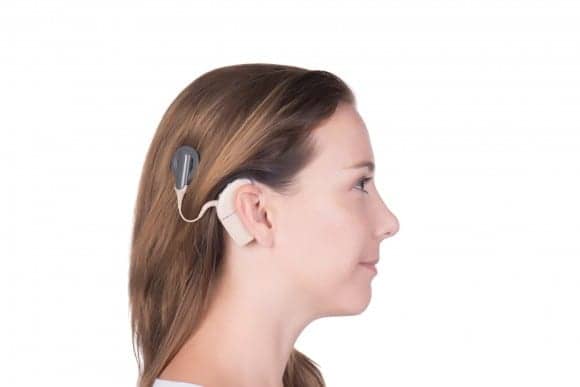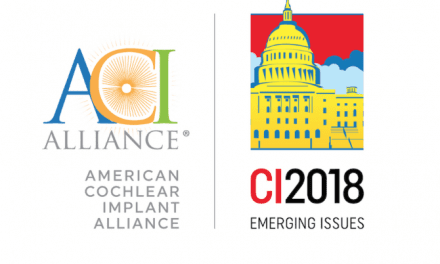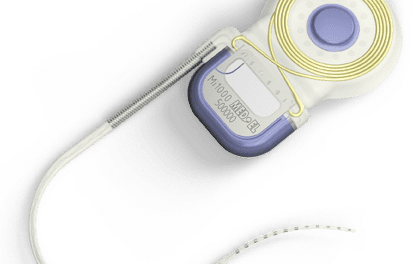Updated July 5, 2017
Cochlear implants that have electrodes designed without wire perform better than those with wires for long-term hearing preservation, a Mount Sinai researcher found in a study published in the June 23 online edition of The Laryngoscope, Mount Sinai announced. The research also determined that the best surgical approach for cochlear implant procedures did not involve drilling into the bone around the ear. The results may transform how doctors approach cochlear implant procedures to give patients the best possible outcomes, according to the researchers.
“This is the largest clinical study done in the world on conventional electrodes and will have major implications for doctors and their patients who need their long-term hearing restored,” said the study’s lead investigator, George Wanna, MD, site chair, Department of Otolaryngology-Head and Neck Surgery at New York Eye and Ear Infirmary of Mount Sinai (NYEE) and Mount Sinai Beth Israel; chief, division of Otology-Neurotology and director of the Center for Hearing and Balance and Ear Institute at Mount Sinai Health System. “This study is a breakthrough for patients with hearing loss, and improvements in practice and techniques will allow them to enjoy many hearing benefits such as music enjoyment, listening in complex environments, and sound localization,” he said.
Wanna and a team of researchers from Vanderbilt University examined roughly 230 patients with every type of cochlear implant, including three FDA-approved implants that use different types of electrodes to stimulate the auditory nerve. They found that electrodes designed with no wire (called lateral wall electrodes) performed the best in maintaining residual hearing in the inner ear, compared to electrodes made with wire. More specifically, the non-wire electrodes were less traumatic, causing less injury and minimizing fractures inside the inner ear. The study found that the actual brand of the electrode did not make a difference; the presence or absence of wire was the only distinguishing factor.
Wanna and the researchers also looked at the impact of two major surgical approaches used to insert the electrodes in the inner ear: “round window” (where surgeons open the membrane without bone removal or drilling in the inner ear) and “cochleostomy” (which requires drilling into the bone to get inside the inner ear). They reported that patients who had the round window approach had a much better chance of keeping their residual hearing in the long term.
“The cochleostomy approach causes fibrosis and scarring, leading to hearing loss over time,” said Wanna. “Our results also revealed that using oral steroids also helped in the long term to preserve hearing by preventing inflammation.”
“We hope the findings will help surgeons choose the best implants and approaches for their patients,” said Wanna. “This is an exciting time in this field, and the advancement in hearing technology and continued improvements in techniques and outcomes will benefit patients and their families.”
This research was supported by the National Institute on Deafness and Other Communication Disorders (NIDCD) and the National Center for Advanced Translational Sciences (NCATS).
Original Paper: Wanna GB, O’Connell BP, Francis DO, et al. Predictive factors for short- and long-term hearing preservation in cochlear implantation with conventional-length electrodes. The Laryngoscope. June 22, 2017. DOI: 10.1002/lary.26714
Source: Mount Sinai, The Laryngoscope






The article provides useful information. However, it’s confusing for the article to say: “Cochlear implants help preserve hearing…” This sentence needs to be rewritten. As the rest of the article indicates, the process of implantatation may actually destroy the hair cells in the cochlea that are typically used for hearing, depending on variables such as the use of wire and drilling through bone. Also, someone who has been deaf for years may not have “hearing” to preserve, although the auditory nerve may still be functional. For such a person, the sense of hearing may appear to be restored rather than preserved…but there may be auditory rehabilitation that is required to make sense of the sounds. In the end, it remains misleading to say that cochlear implants “preserve” hearing.
Thank you, Dana. We have updated the article.
“Our results also revealed that using oral steroids also helped in the long term to preserve hearing by preventing inflammation.”
Does the above indicate one must be on long term steroid use to reduce inflammation to preserve hearing?